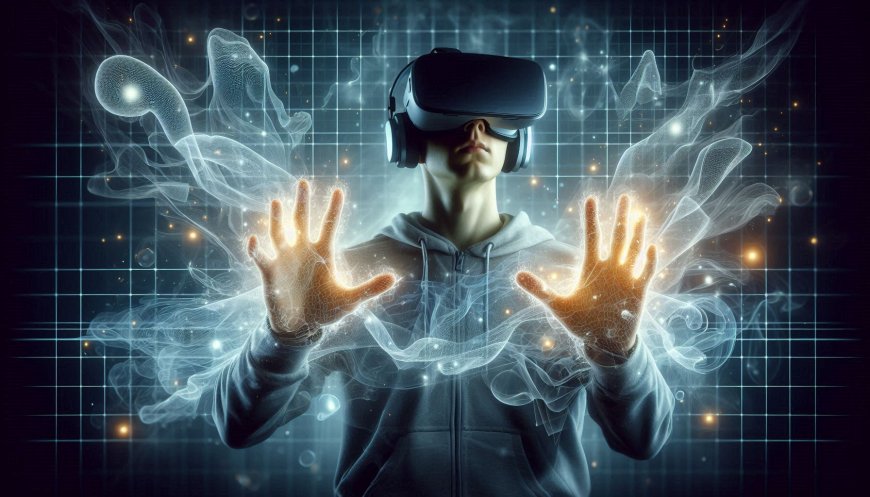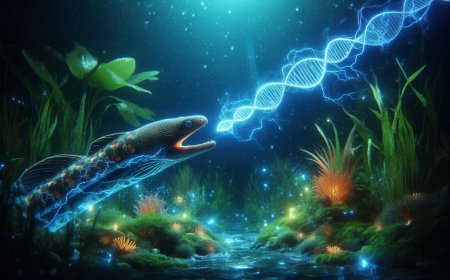The Enigmatic World of Phantom Touch: Unlocking Virtual Reality’s Hidden Sensation
Explore the fascinating phenomenon of Phantom Touch in virtual reality, a unique sensation that blurs the lines between the digital and physical worlds. Discover how VR users experience tactile sensations without physical contact.

At Ruhr University Bochum, Germany, a groundbreaking discovery has been made in the realm of virtual reality (VR). Spearheaded by Dr. Artur Pilacinski and Professor Christian Klaes, their research team unearthed a puzzling phenomenon: the phantom touch illusion. Within VR scenarios, where participants interacted with virtual objects, some reported feeling a distinct tingling sensation—despite the absence of any physical contact.
“People in virtual reality sometimes feel as though they’re touching real objects,” Pilacinski shared. These experiences were often described as electrifying or akin to a light breeze passing through their skin, a perplexing sensation in a world made up of digital pixels rather than tangible matter.
The team’s study, published in Scientific Reports, delved into how our brains interpret virtual experiences, offering an intriguing glimpse into the fusion of reality and perception.
The Experiment: A Journey Into Virtual Touch
The research involved 36 volunteers, each outfitted with VR glasses and immersed in a digital environment. Their task? To touch their hand with a virtual stick. As the participants reached out in this computer-generated world, many reported tingling sensations, not only in the hand they could see but also in parts of their bodies invisible in the VR setting. It was as though the virtual environment extended its reach beyond the screen and into their minds.
This peculiar finding suggests that our perception of touch and body sensation may arise from a complex blend of sensory signals—a fusion of what we see, expect, and feel. The brain’s capacity to blur the lines between the virtual and the real proved to be far more powerful than anyone anticipated.
A Control Experiment and Astonishing Results
To further probe this illusion, the researchers conducted a control experiment, swapping the virtual stick for a laser pointer. However, this did not replicate the phantom touch sensation, highlighting the unique nature of the experience in virtual environments. The combination of digital immersion and sensory anticipation seems to trigger something deep within our neural wiring, a phenomenon still largely unexplored.
“This could enhance our understanding of neurological diseases affecting body perception,” explains Klaes, hinting at the broader implications of their work.
The Road Ahead: Unraveling the Brain's Secrets
While this discovery opens a fascinating new chapter in the understanding of human perception, it also raises important questions. Could this phantom touch illusion offer insights into conditions where the brain misinterprets bodily signals, such as phantom limb syndrome? Could it revolutionize VR therapy, enhancing rehabilitation methods by creating more immersive and emotionally impactful experiences?
In collaboration with the University of Sussex, Pilacinski and Klaes plan to dive deeper into the neural mechanisms behind this phenomenon. Their goal is to untangle whether this illusion is purely sensory or if cognitive elements, such as suggestion or expectation, play a significant role. “We are eager to explore the neural basis of this illusion and expand our understanding of the brain’s capacity to merge real and virtual worlds,” says Pilacinski.
A New Frontier in Virtual Reality
This discovery is more than a curious quirk of the mind—it offers a glimpse into the vast, uncharted territories where technology and human experience intersect. As VR technology continues to evolve, its applications in medicine, therapy, and even entertainment may expand in ways we’ve only begun to imagine. The phantom touch illusion reminds us that our minds, like the virtual worlds we create, are capable of extraordinary things.
In the coming years, this research may unlock new therapies for neurological disorders, offer more intuitive virtual experiences, and deepen our understanding of how the brain interprets reality. In the meantime, the mystery of phantom touch leaves us in awe of the brain’s remarkable adaptability in an ever-growing digital world.
In VR, it seems, even an illusion can feel real.
What's Your Reaction?







































































































